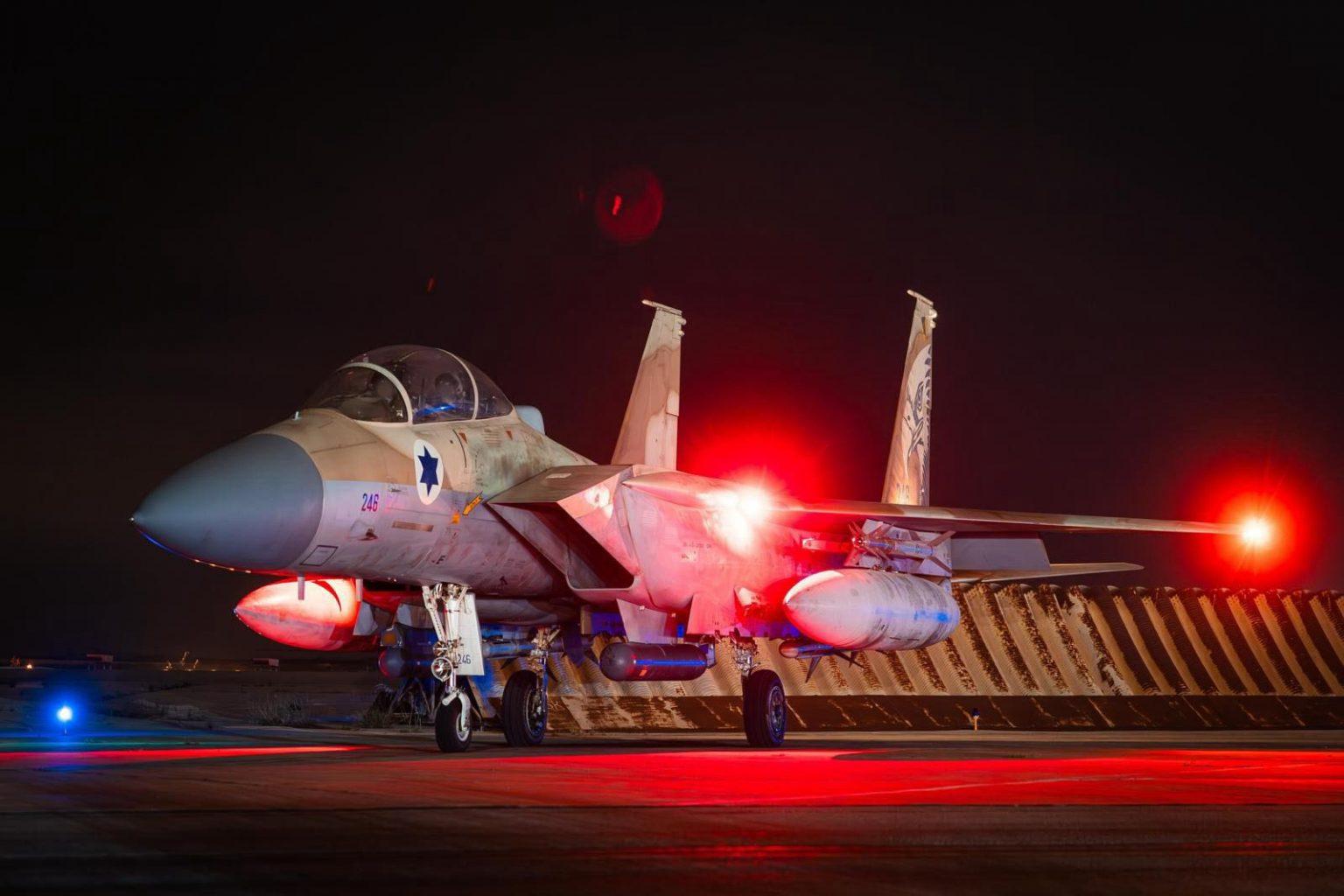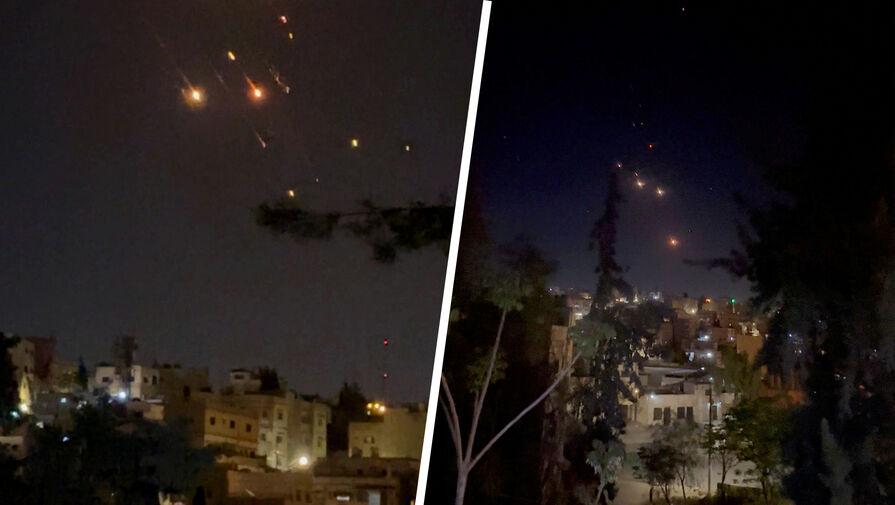Iran's attack on Israel: "A landmark event with far-reaching consequences" Caliber.Az analysis
The missile attack by Iran and its allies on Israeli territory on the night of April 13-14 was a landmark event for Israelis for several reasons. Firstly, for the first time since the 1991 Gulf War, when Saddam Hussein (former President of Iraq) used Scud systems against Israel, the country was shelled with modern missile systems. Second, Iran acted directly against its strategic adversary, only partially using allied forces in Yemen, Syria and Iraq. A significant part of missiles and drones were launched directly from Iranian territory, which may well serve as a "casus belli", a "reason for war".
Overall, Israeli authorities declared the Iranian attack a success. "Tehran wanted to strike strategic infrastructure - its plan failed," the Israeli army spokesman's office said. According to its spokesman General Daniel Hagari, a total of about 350 rocket and drone launches were observed from the territory of four Middle Eastern states. The weapons carried 60 tonnes of explosives, but the results of the attack were inconsequential, with minor damage to the Navatim base, used in particular to attack Iranian targets inside Syria, and to highways in various parts of Israel.
The Israeli military's statement emphasised the actions of allies. "The IDF, together with a powerful regional coalition led by the United States, Britain, France and others, prevented and thwarted an Iranian attack," their press release said. The US Navy intercepted between four and six ballistic missiles, and another 70 Iranian aircraft were intercepted as a result of joint action by US and British forces.
According to Israeli journalist Ron Ben-Yishai, the participation of Western countries in the hostilities is a demonstration that Israel has emerged from the state of international isolation in which the country found itself following the fighting in the Gaza Strip and the mass deaths of Palestinian civilians. The Israelis attribute an important role to the participation in repelling the Iranian military attack to Jordan, whose leadership was not afraid of pressure from Tehran and the public opinion of its own population, acting openly as a military ally of Israel. At the same time, Israeli experts emphasise that their country needs to develop its own military potential and not rely solely on the help of allies. Otherwise, a picture may emerge that without Western assistance Israel is unable to confront the Iranian threat.

The Israeli Air Force also reported intercepting hundreds of Iranian aircraft. As one Israeli pilot said in an interview, "This historic night evoked a sense of satisfaction and pride..... I learnt a lot of lessons from this sortie, lessons that we will still learn afterwards."
But it cannot be said that repelling the Iranian attack was cheap for Israel, at least financially. In an interview with Ynet, former financial adviser to the IDF Chief of Staff, Reserve Brigadier General, Col. Reem Aminoah, said that "the matter concerns 4-5 billion shekels ($1.07 billion-$1.34 billion) for one night of active defence. And I'm only talking about what we managed to intercept, the damage on the ground, which was minimal, is not even taken into account.... If we are talking about ballistic missiles, the Hetz (or Arrow) missile defence systems are used to intercept them, and if it is other types of missiles or drones, this threat is dealt with by the IDF Air Force - combat aircraft. Thus, it is possible to make a rough estimate of costs: a Hetz interceptor missile costs $3.5 million, a David's Arms missile costs $1 million, to which should be added the cost of a Hetz missile. - $1 million, to this should be added the cost of aircraft and the like. So, in total, we are looking at about 4-5 billion shekels.
Iran's spending on the attack did not exceed 10 per cent of this amount, and therefore, according to Israeli experts, to be able to successfully repel such attacks in the future, Israel should seriously increase its military budget, which could be a noticeable burden on the country's economy: "I think it is necessary to separate the situation now from future challenges. At the moment, Israel is engaged in high-intensity hostilities, and accordingly, the costs have increased dramatically. But let's assume that this situation will stop at some point. That is, the extraordinary expenditure was a one-off. But in order to prepare for the long term, it is necessary to increase the defence budget by 60 billion shekels, and on a permanent basis. And that is more than 3 per cent of GDP. Such a move would have very serious consequences for the Israeli economy. It could lead to the fact that we would not be able to cover this level of spending, and the foreign debt - on international loans - would increase to very large amounts," explained former Finance Ministry chief economist Roy Naveh. But in order to prepare for the long term, the defence budget needs to be increased by 60 billion shekels ($16.1 billion), and on a permanent basis. And that is more than 3 per cent of GDP. Such a move would have very serious consequences for the Israeli economy. It could lead to the fact that we would not be able to cover this level of spending, and the foreign debt - on international loans - would increase to very large amounts," explained former Finance Ministry chief economist Roy Naveh.
Because the Iranian attack was "announced" in advance, Israeli authorities took steps to ensure civil defence measures. Flights from Ben-Gurion International Airport were cancelled. Classes in schools and other educational institutions were cancelled. Prime Minister Benjamin Netanyahu declared a state of emergency in advance, banning public events. As the Ministry of Economy urged the population to stock up on food, tens of thousands of citizens rushed to shops and supermarkets on 13 April. On that day, the demand for food increased by 150-250 per cent; at Carrefour, sales of bottled water increased by 1,000 per cent, eggs by 450 per cent, tinned food by 350 per cent, baby food by 380 per cent, nappies by 380 per cent, toilet paper by 340 per cent, etc.
However, Israelis accustomed to war and shelling spent the night of the attack calmly. Judging by publications in social networks, most of them were sleeping peacefully at home at the time. Foreigners visiting the Holy Land took the situation much more alarmingly. Liora Israel from South Africa travelled to Israel to visit Ben-Gurion University of the Negev. On the night of the Iranian attack, she was at the Navatim base, where an unsettling atmosphere prevailed. "We were scared. Sirens were sounding, but we had an elderly woman with us who required care, and I tried to disconnect from reality by helping her," the South African said.

But there will probably always be money for war in Israel, as in any other country. It is much more difficult to decide on a plan of further action after the Iranian attack. Avi Issacharoff, a well-known military expert, notes that the old strategies for containing Iran have exhausted themselves and a new plan of action must be devised. Unlike Lebanon, the Gaza Strip or Syria, any large-scale attack against Iran must be coordinated with the US administration, but President Biden and his European Union partners have already called on Israel to exercise restraint. A war between major regional powers in the Middle East is not at all in the interests of the United States.
In an interview with the Israeli publication Walla, a senior US official, who preferred to remain anonymous, noted that intensive consultations are now underway between Tel Aviv and Washington. "We think they need to be careful ... It's up to the Israelis to decide how to respond. They came out victorious last night." According to him, at the end of the attack, the Iranians notified the United States through the Swiss government that after the night bombing, Iran considered the incident to be settled. “We will not participate in an Israeli attack against Iran. Our goal is to avoid escalation and regional conflict, and not the spread of the crisis beyond Gaza,” the American added.
At the same time, Israeli opposition spokesmen Beny Gantz and Gadi Eisenkot believe that Israel must take immediate action against Iran because delaying entails weakening the legitimacy of a retaliatory attack in the eyes of the world community and increasing Western pressure on Israel.
But it cannot be ruled out that Israel's response will be postponed until better times. Issacharoff also writes that the Iranian challenge should be countered with a long-term strategy aimed primarily at improving relations with the Palestinian Authority and Saudi Arabia.
The views and opinions expressed by guest columnists in their op-eds may differ from and do not necessarily reflect the views of the editorial staff.








